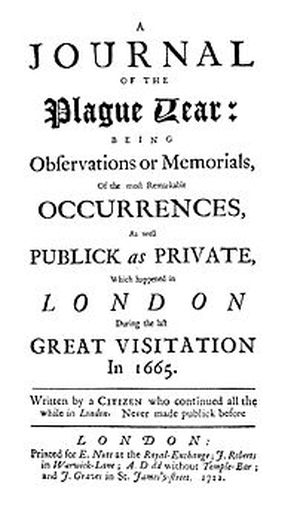Sir Isaac Newton's Self-Quarantine
While the bubonic plague raged elsewhere, Newton, in seclusion, embarked on what he'd later describe as the most intellectually productive period of his life.
On Christmas Eve in 1664, a London resident named Goodwoman Phillips was found dead in the run-down district of St. Giles-in-the-Fields. Telltale “buboes” on her corpse left no doubt about the cause of death. Her house was sealed and the words “Lord Have Mercy On Us” were painted on the door in red: Phillips had died of bubonic plague.
Only a few other deaths from plague were reported over the next few months. But by April, the numbers had begun to climb markedly. When summer arrived, death was everywhere. Records from mid-July showed 2,010 deaths, spread among every parish in London. The death toll a week later had jumped to 7,496. Over a period of 18 months, the Great Plague of London, as the epidemic came to be called, would claim more than 100,000 lives – roughly a quarter of the city’s population.
Then as now, social distancing was an important response to the deadly outbreak. Urban residents who could afford to do so fled to the countryside. Among the institutions that closed for the duration was Cambridge University, and among the students who headed home for what today we would call self-quarantining was a 23-year-old mathematics student by the name of Isaac Newton.
<snip>
https://www.aish.com/ci/sam/Sir-Isaac-Newtons-Self-Quarantine.html
The Blue Flower
(5,439 posts)Very interesting window on London city dwellers' response during that time. Available free at www.gutenberg.org.
3Hotdogs
(12,366 posts)It was also the summer of a Yellow Fever epidemic that caused death to its victims. It is spread by mosquitoes and the wet summer of '87 brought a significant amount of the pests.
The mortality rate was so high that prisoners were brought out from the municipal jail. They were chained to carts and went throughout the city to collect bodies.
George, Ben, John and other founding fathers were there that summer in Philadelphia. (Tom was in Paris.) But none of them caught the fever. This is attributed to the closed windows in Independence Hall. The windows were closed so that passers-by would not hear the topics being discussed and the arguments that took place.
That summer was hot. Most houses had their windows opened for whatever cool air or breeze might be offered. But not the windows of Independence Hall. So while the heat was kept in, the insects were kept out and so was Yellow Fever.
appalachiablue
(41,118 posts)with their civic commitment to the new nation and good works, few of the founding fathers and early elite families escaped real human troubles. Dolley Madison's son, John Payne Todd who lost his father and brother in the yellow fever epidemic in Phila. in 1792 grew up plagued by gambling, drink and debts. The Custis-Washington, Adams family and others had their share of issues; that's life.
- (Wiki) John Payne Todd (February 29, 1792 – January 16, 1852), also known as Payne Todd, was the first son of Dolley Payne and John Todd Jr. His father and younger brother died in the 1793 Philadelphia yellow fever epidemic, which killed nearly 10 percent of the city's population. His mother remarried the following year, to the older James Madison, the future president of the United States.
Madison adopted Todd at age 2 and tried to help him in what developed as a difficult life. Believed to be alcoholic, Todd was repeatedly jailed for shooting incidents, and ran up debts in gambling. His parents bailed him out of debtors' prison, mortgaging Madison's Montpelier to raise the money. His stepfather had him manage Montpelier at one point, but Todd was unsuccessful. Todd died of typhoid fever less than three years after his mother's death of old age...
https://en.wikipedia.org/wiki/John_Payne_Todd

- John Payne Todd, c. 1817.
appalachiablue
(41,118 posts)- Daniel Defoe: 'A Journal of The Plague Year' London, 1665
https://www.democraticunderground.com/1016249633
